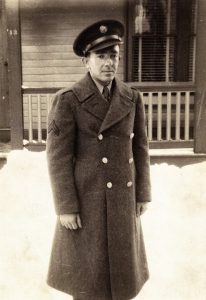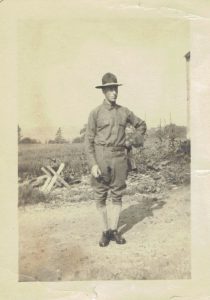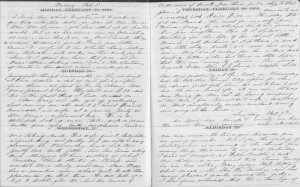
As we mark Veterans Day, I think of my ancestors who fought for our country. During my family search, I found that most of my ancestors didn’t arrive to the United States until 1870; we don’t have any early American soldiers in our family tree who fought in the American Revolution or World War I. I do have two great-uncles, on my paternal side, who were in the military during World War II. These two men are the individuals I want to honor this Veterans Day.
My grandfather, Leo Napoleon Dery, had a brother named Gerard Ovila Dery who was born in 1920. Gerard, pictured in uniform, enlisted on 2 February 1942 at the age of 22 and was stationed at Fort Benning in Georgia. Continue reading Two souls






